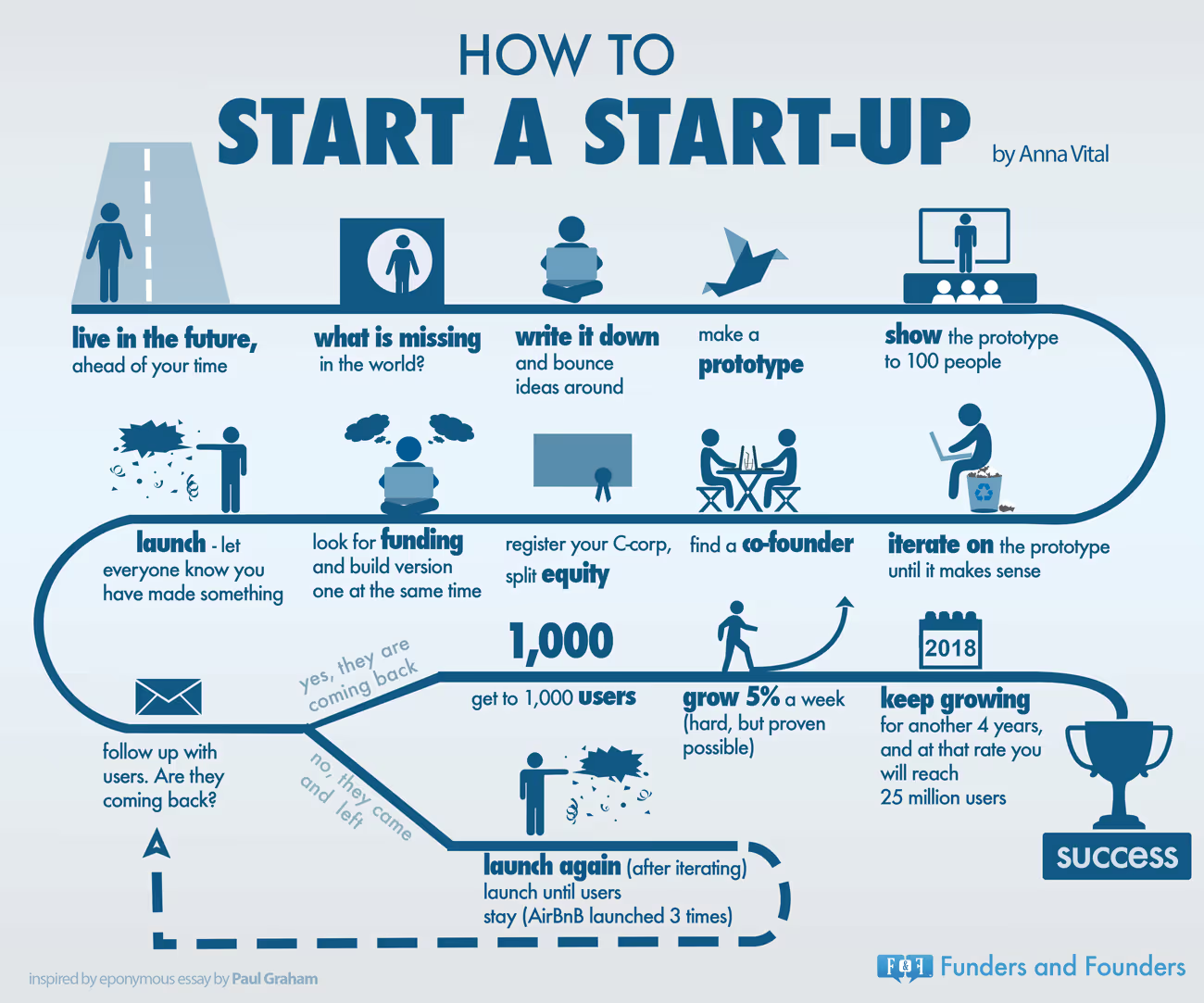Perhaps more companies should look at bootstrapping. In Part 1 of this series, we look at some of the common dangers and flaws of the startup scene as it relates to investment and valuations.
Creating Value vs. Valuations
Taking on investment to build a company is a huge achievement that often receives much fanfare and applause… but there’s also another way to fund a startup that rarely receives much attention. Bootstrapping is in many ways a slower method of growing a company, but it also teaches great lessons about the importance of driving value to your consumers. After all, creating value should be the primary goal of any business, right?!
Many overvalued startups focused on “making an exit” rather than actually solving a problem or delivering painful yet valuable service to consumers are distorting the true value and mission of entrepreneurship. As a result, there is an inflated valuation associated with many startups. According to Bloomberg,“A few years ago, a big VC fund might have had about $500 million to play with. Today, “big” means well over $1 billion.” However, the amount of real value that many of these startups are creating is questionable.
Lately in the startup scene, founders lacking proper direction and passion combined with investors who really have no idea what investing is all about have begun to create what many experts call the startup bubble. The founders generally have some brilliant idea that’s “going to be the Uber of _______” but they rarely understand the true hardships that they are about to face and often lack the tenacity to overcome adversity when the fear and chances of failure seem crippling.
“There are a whole bunch of businesses that are good, not great, but they’ve raised money as if they were great”
Nowadays, you can find a crowdfunding page for just about anything and you’ll run into all sorts of folks who call themselves “investors”. Anyone with a bank account and money to lose these days can get in on the fad of funding… but the problem this causes is that when money is so easy to get, it starts to lose value and meaning.
Everyone wants to be the next “unicorn” and if they don’t reach unicorn status in a certain period of time, they pivot and then pivot again, and again… because for some unknown reason pivoting in the face of adversity became cool. While pivoting once can be very helpful, chances of success generally decrease dramatically after more than one pivot. This is because people become so invested in their failing idea that they are unable to see the cracks and flaws that will soon begin to break under the weight of logistics, onboarding, scaling, etc. Rather than give up on the “unicorn” idea and settle for something that is simple but solves the problem, they continue to push for something that will give them a “10x or more return” that they’ve promised their investors.

What this means is that startups are becoming little different from any other major company and as they leverage their cash to gain talent, office space and perks, they are making it harder and harder for smaller startups to get traction for success. Perhaps the biggest problem, however, is the fact that the continuation of this process will soon cause a massive stratification and gap between estimated value and reality.
Tenacity and Passion Will Always Win
The truth is that regardless of how much investment you acquire or how many board members you have, the single best predictor of success will always be how hard you work. Sure, luck plays a role as does spotting and hiring talent and so on but at the end of the day, tenacity and passion will always win.
But it’s not passion for your idea or passion to stick to your initial game plan that matters… it’s passion and tenacity to drive value for your users and customers. It’s passion and tenacity to be willing to suffer great burdens in order to make other people’s lives better because you have created a great product that you believe in. Fame, fortune and fornication may be the reward at the end of that struggle, or it may not be, but it certainly should not be the lofty goal that you have set your eyes on.

As in life, this entrepreneurial journey is not about how hard or how many times you fall, but rather it’s about how quickly you pick yourself up and try again. However, it seems that many people are all too willing to burn through someone else’s money rather than learning to properly fix the problem properly.
The idea of “fail fast, fail hard” has become the tagline of many entrepreneurs. Yet, while this principle does have its merits, it makes young founders believe that failure after the initial stages should be unacceptable. That’s far from the truth. Even the best leaders and cleverest startups will face continued failure and if you lack the ambition to carry on after you’ve run out of other people’s money, then perhaps you had the wrong motives from the beginning?
While “build, measure, learn” is indeed critical to startup success, it’s often done poorly because it’s other people’s money at risk. It’s fun to build products and it’s great to learn from failure at someone else’s expense. However, failure without pain doesn’t really teach the same lessons as failure when most of the skin in the game is your own. The willingness to face ambiguity with courage and to be flexible enough for constantly changing circumstances will be essential characteristics as you go through this process and will rest not so much on how much money you have behind you, but on what you’re made of.
Ask Yourself “Why?”
The point that I’m trying to make here is that while many people have glossy-eyed ideas of how fun entrepreneurship will be and how awesome it will be to found a startup and create products, I wonder how many of them would still chase their dreams if taking on investment was not as popular as it has recently become.

How many would place their own resources at risk and weather the storm, even if it meant failure? How many founders are truly that passionate about their product or idea… and how many are just starting companies to make money, flip it and make an exit? What is your “Why?”
Entrepreneurship is the backbone of capitalism and shouldn’t be taken lightly. The effects of a bursting startup bubble as a result of misguided principles and poor funding habits would be far worse than the effects of people learning the hard lessons of bootstrapping… so if you’re going to enter the game, please have a better answer than “I want to make money” or “I want to be a founder”.
In Part 2, we will take a look at some good reasons for bootstrapping, including why Harvard Business Review says “every startup should bootstrap”. Follow the journey.



